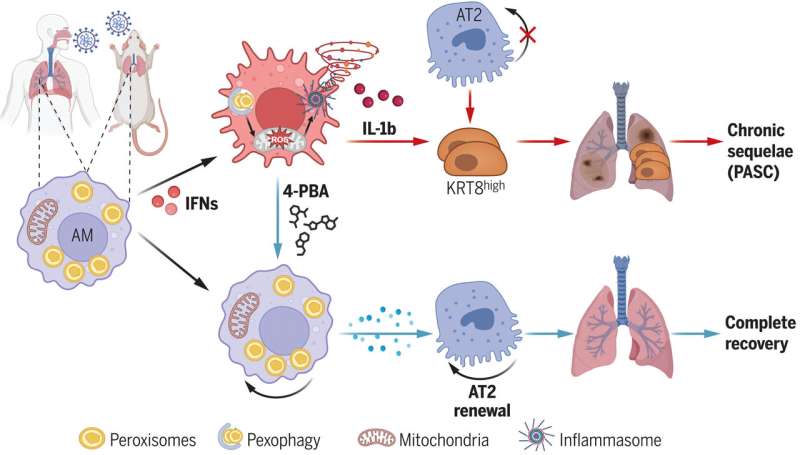Led by UVA’s Jie Sun, Ph.D., the researchers found that severe viral infections including COVID-19 and the flu can gravely damage a key organelle inside immune cells called macrophages. Macrophages direct lung repair after tissue damage, but their ability to do so is crippled by the loss of the critical organelles, called peroxisomes, Sun and his team found. The findings are published in the journal Science.
Promisingly, the UVA scientists found that they could enhance the damaged organelles’ ability to function—and improve the immune system’s ability to heal lung damage—using a drug that has already been approved by the federal Food and Drug Administration.
“COVID-19 can leave the lungs unable to heal properly by damaging these tiny structures inside our cells. Our discovery is important because it not only explains why some people continue to have breathing problems long after their initial illness but also points us toward a potential treatment to help them recover by targeting a tiny organelle inside critical immune cells,” said Sun, of UVA’s Carter Center for Immunology Research and UVA’s Division of Infectious Diseases and International Health.

